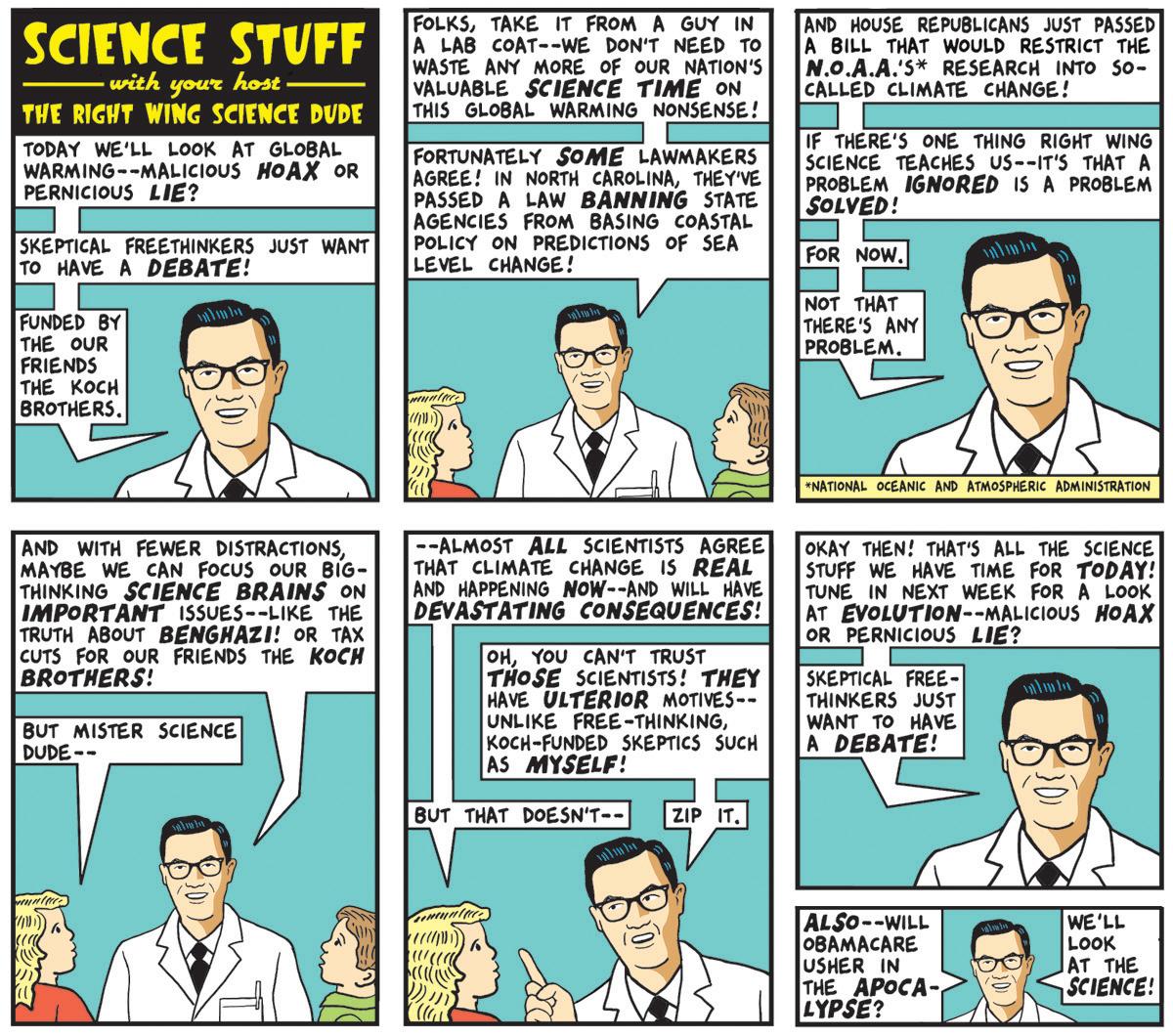
3 minute read
Opinion/Streetalk
from April 10, 2014
ThiS Modern World by tom tomorrow

Advertisement



Wildlife refuge Would you have your children vaccinated?
We apparently touched a nerve with our coverage of the raccoons that are making their cute, hungry and dangerous little selves known in Reno’s southwest. While there is not a raccoon running for office, there are raccoons sauntering the streets and fencelines, ever on the lookout for food in garbage cans, compost heaps and those little dogs that squeak more than they bark.
Raccoons are bold. They’ll will enter your home through pet doors and eat any food that’s left out. They’ll fight with household pets—apparently dogs more than cats—and they’ll attack humans if cornered or to protect their kits. They’re a vector animal, which means that humans or other animals can catch some of their diseases, like rabies.
Psychologists say that knowing you have a problem is the first step toward fixing it. You’ve got a raccoon problem, admit it. Don’t call Washoe County Animal Control, they haven’t the resources to cope. You can call a pest removal outfit, but it’s expensive, and there’s no guarantee of a permanent solution.
Raccoons are considered by law a nuisance species, so you can legally kill them, but you can’t legally shoot them with a gun in your yard or in your house. Even if you could hit one, and that’s no guarantee, you could end up being contaminated with disease by sprayed blood.
Raccoons are notoriously hard to trap. The exact food that they’ll pick the lock on your front door to get at is utterly uninteresting to them when it’s put in a wire “humane” trap. And if you were unlucky enough to catch one, what are you going to do with it? Discharge a firearm in city limits? Not a good idea. Drown the little bastard in your big, green recycle bin? That’s considered animal cruelty. And poison is not just cruel, but it can create a bad situation for neighborhood pets.
You also can’t take raccoons into the mountains and release them into the wild. Again, they’re vector animals, and you could infect entire populations of other animals in the transplanted raccoon’s new home, not to mention that a city raccoon has different life skills than a mountain raccoon, and you’re probably just condemning it to death by starvation because you’re too cowardly to do the deed.
But if you are able to trap one—and really, we’re betting on the raccoon in this example—you could have a pest control company kill it. Usually, it’s just a matter of putting the animal into a chamber with carbon monoxide pumped in. Not the way we’d prefer to go, but, hey, it’s you against the raccoon, right?
In truth, the key to living with raccoon is accepting they’re part of your environment. If you don’t give them a reason to come around, they won’t. Secure your pets’ food. That means putting it in a metal or thick plastic container with a lockable lid. Don’t free-feed your animals outside and don’t freefeed your animals near a pet door.
Raccoons are a bit dangerous, but you’re better off putting your energy into removing the things that attract them to your house than trying to put them out of your misery. Ω

Asked at the Crowley Student Union
Eric Robinson
Biology major I probably will. I think they’re important. It helps a lot in protecting people. I was vaccinated.
Lea Pope
Community health major Yes. I think vaccinations are a very good thing for the overall health of the community. They say there is that herd immunity—90 percent vaccinated will help that other 10 percent that don’t get vaccinated.
Matthew King
Geography major Yes, to prevent new outbreaks of polio and any other sort of outbreaks. I think they’re important to public health.
Lucia Sanchez
Biology major Yes. I want them to not get polio or measles, and I don’t want them giving them to other kids. I think [vaccinations are] really important to contain certain things.
Marissa Sylvester
Speech/hearing pathology major Yes, because I wouldn’t want them getting sick and getting them vaccinated would lower their chances of them having to deal with that.









